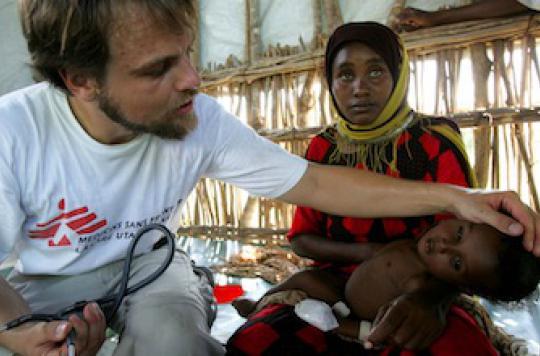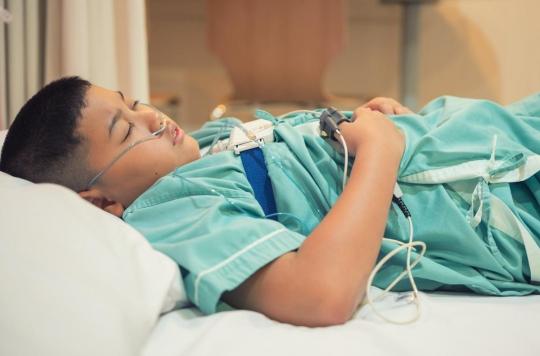Médecins sans frontières has signed a partnership with the Brest University Hospital. Interns in medicine go on internship to the other side of the world. Humanitarian medicine is not a low cost medicine.

“I no longer look at people who come into consultation the same way.” Intern in general medicine, aged 28, Clément Cogneau talks with passion about his six-month internship at the local hospital in Bétou, a small town in the depths of Congo-Brazzaville. “I had to sharpen my clinical sense because there, we had very little access to additional examinations…” Clément is the first intern to have completed an internship on a humanitarian mission. Getting out of the walls of the hospital, opening up to other conceptions of medicine, discovering Africa, a dream for Clément who had made a month-long tourist trip to Burkina Faso.
50 children to see every morning
Thanks to a unique partnership between Médecins sans frontières (MSF) and the Brest University Hospital, he took on a post in the pediatric service. “There were between 40 and 50 children to see every morning at the visit. »Malaria, undernutrition, prematurity… Clément had to face many situations. “I really felt useful, we were able to save a lot of children, but it is true that I was also faced with death because unfortunately we did not have access to all the technical means at our disposal in France. . “
Listen to Dr Clément Cogneau. “ We do not react at all the same way in the West and in Africa. “
Like Clément Cogneau, other interns at the CHU de Brest will go on mission with MSF. However, the NGO has no real difficulty in recruiting doctors, but “we are struggling to retain them,” explains Dr Claire Rieux, vice-president of Doctors Without Borders. In addition, many of our missions today are hospital programs, sometimes with up to 500 beds. We therefore need to open up to the hospital. ” For the faculty of medicine as for the interns, this partnership also has several advantages: the young interns relearn the clinic, they are confided to populations that they will perhaps have to treat when they return to France and they are trained in notions of public health.
No emergency mission for interns
Of course, there is no question of sending all young doctors to the other side of the world. “They have to have replacement capacity,” warns the MSF vice-president. And then, we don’t send them on really hot emergency missions. They go on post-crisis missions. ” This is the case with the Bétou program, where the very first intern in Brest left.
Since 2009, MSF has been sending volunteer doctors to the Bétou district. The French NGO offers primary and secondary health care. The Bétou program was reopened in November 2009 when tens of thousands of people arrived fleeing conflict in Equateur province in the Democratic Republic of Congo (DRC). More than 140,000 refugees have come to settle in the Likouala department. The last census of the United Nations High Commissioner for Refugees (UNHCR) in December 2011 estimated the refugee population in the district of Bétou at more than 59,000 people, and the resident population at 35,000. Bétou hospital has around 90 beds. Each month, 450 patients are hospitalized, half of them in maternity hospitals and nearly a third in pediatrics. The main reasons for hospitalization in children are malaria and respiratory infections.
Listen to Dr Clément Cogneau. ” At the local hospital, I looked after three areas of pediatrics “.
Making a good diagnosis without benefiting from additional examinations was the first difficulty. The second: to cross the language barrier. “The local dialect over there is Lingala,” explains Clément. But communication doesn’t just happen through language, gestures and looks also say a lot. For him no doubt, his mission for MSF has been particularly rewarding.
Other interns should be able to benefit from this experience. The partnership signed between MSF and the Brest University Hospital provides for two internships for general medicine interns. It should widen and open up to students of gynecology or surgery. And other medical schools are already knocking on MSF’s door.
.















